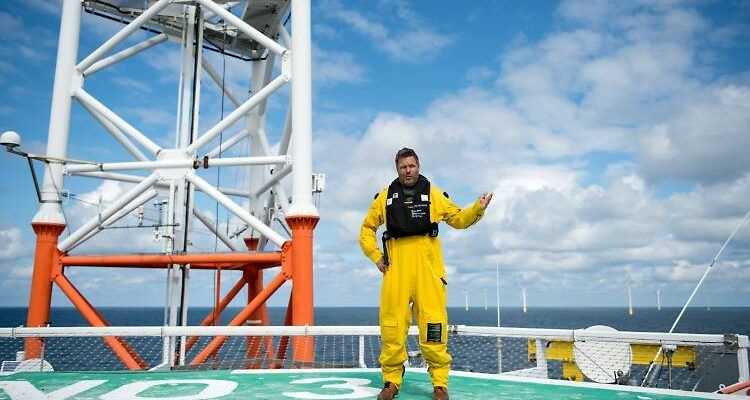Monday, December 20, 2021
Preserve jobs
Habeck promotes eco-restructuring of the economy
Economy and Climate Minister Habeck wants to rebuild the economy according to ecological criteria – and not just for the climate: Otherwise there is a risk of job losses. To do this, he wants to expand wind energy and is certain that he will be able to dissolve resistance in the population with an “offer”.
Federal Economics and Climate Minister Robert Habeck sees a rapid ecological restructuring of the economy as the prerequisite for securing jobs in Germany. “If we don’t tackle that, we will not only have ecological catastrophes, but we will also have a loss of jobs and added value,” warned the Green politician on Deutschlandfunk.
Habeck relies on his experience in expanding wind power as Schleswig-Holstein’s environment and agriculture minister. (Archive image)
(Photo: picture alliance / dpa)
With a view to the costs of this conversion, the Green politician pointed out that “no climate protection is the most expensive option”. This applies to climate-related disasters such as in the Ahr Valley, where not only all human suffering but also costs of around 30 billion euros have arisen, but this also applies “because the economic fields of the future will be climate-neutral economic fields”.
The USA and China are currently the market leaders here, said Habeck. Now Germany too must “finally wake up” and start “fighting for the top again”. “We have to see that we save the supposed contradiction between CO2 emissions and resolve industrial production and economic prosperity,” warned the Minister for Economic Affairs and Climate.
With a view to the coal phase-out, Habeck reiterated the goal anchored in the coalition agreement of concluding it by 2030. The prerequisite for this, however, is “that we produce large amounts of other electricity, especially renewable energies,” he added, also referring to the coalition agreement. Reducing CO2 emissions is not just a green project, but “a national matter”. Above all, significantly more wind power on land is necessary for this.
Let people share in the profits from wind power
“Today we have 0.5 percent of the land area with wind turbines, it has to be two percent, that is, a four-fold increase in the amount of wind power in eight years,” said Habeck. With the current expansion rates and planning times of around six years, this cannot be achieved. “So we will have to plan faster and expand more,” demanded the minister.
With a view to resistance to more wind turbines, Habeck referred to experiences that he had made as a minister in Schleswig-Holstein. “You have to ensure that the municipalities and the people participate in the economic gains that can be made through the expansion of wind power.” Then some resistance dissolves. For this it is also important that a larger share of the added value is again generated in the manufacture of wind turbines in Germany.
Habeck clearly rejected a renaissance of nuclear power, as it is being discussed in the EU Commission and some EU member states. “I don’t think nuclear power is the right technology,” he clarified. It will now be very important “that the Commission proposes the right thing”. Their proposal for a possible classification of nuclear power as “sustainable” is expected soon. The German government rejects such a classification, while France is in favor of nuclear power as a bridging technology.
